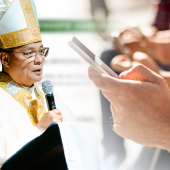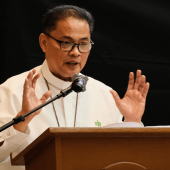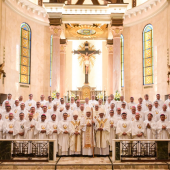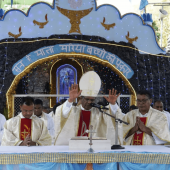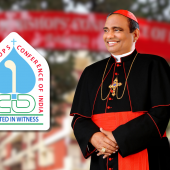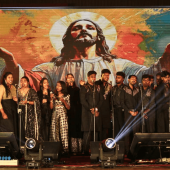Philippines bishops to establish climate desks in all dioceses
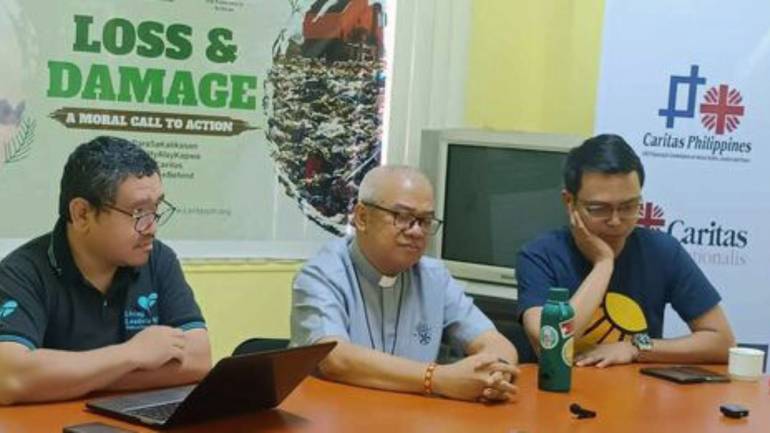
Caritas Philippines, the social development wing of the Catholic Bishops’ Conference of the Philippines (CBCP), is to establish “Ecology Desks” in all 86 dioceses in the country to address climate change.
Addressing the post-Conference of Parties (COP28) press conference on December 14, Gerardo Alminaza of San Carlos diocese, the head of the National Laudato Si’ Program of the CBCP, said that he would suggest to the country’s bishops in the forthcoming bishops’ plenary in January 2024 to establish a “Climate Desk” before the next climate summit.
“We will aim for 100 percent—that all dioceses can create the desk and fully engage in the ecological campaign of the Catholic Church,” said Bishop Alminaza, who is also the Vice Chairperson of Caritas Philippines.
In 2019, CBCP issued a pastoral letter, “An Urgent Call for Ecological Conversion, Hope in the Face of Climate Emergency,” where they said they would make efforts to make the protection of the environment a special concern in all dioceses.
Reinvigorating the climate action in the country is for the sake of poor and vulnerable people in the country and the planet, echoing the key messages of Pope Francis’ encyclical on the environment, the Laudato Si.
Bishop Alminaza was one of the Philippine delegations for the 28th Conference of Parties (COP28) in Dubai, the United Arab Emirates. Besides, other Filipino climate advocates were the official representatives of the Catholic Church in the Philippines.
For the first time, the CBCP has sent an official not only to observe but also to engage in various side events and participate in the dialogue.
“Our task is to serve as the voice of the vulnerable communities. We must bring the stories of the communities that are gravely suffering due to the climate crisis to the negotiation table,” the bishop added.
Bishop Alminaza encouraged his brother bishops “to advance the synodal process” and “let the ‘Cry of the Poor and the Cry of the Earth’ be heard in all avenues”.
At the press conference, leaders from civil society backed the Catholic Church's environmental program and stressed how important it was to have both "data-driven, scientific evidence and moral grounding."
The head of the Center for Energy, Ecology, and Development (CEED), Gerry Arances, said that his group "will continue working" with the Catholic Church on several climate-related problems.
"The Church and CSOs working together is very important, not only in the climate talks but also in giving communities that are weaker the tools they need to deal with the effects of the climate crisis," he said.
Arances promised that CEED would keep giving groups, like the Philippine Church, "essential and relevant scientific research and studies" that they could "use to advance the discourse on climate change."
At the event, Rodne Galicha of Living Laudato Si Philippines and Aksyon Klima Pilipinas talked about how the Church and the CSOs work together "tightly" to "amplify campaigns of local communities."
"Climate talk, or the COP, is just one place to meet." The real battle we need to win is with the people in the area who are fighting environmental theft, he said.
The Philippines, as an island nation, faces about 20 typhoons in a year, besides other natural calamities.
Radio Veritas Asia (RVA), a media platform of the Catholic Church, aims to share Christ. RVA started in 1969 as a continental Catholic radio station to serve Asian countries in their respective local language, thus earning the tag “the Voice of Asian Christianity.” Responding to the emerging context, RVA embraced media platforms to connect with the global Asian audience via its 21 language websites and various social media platforms.









